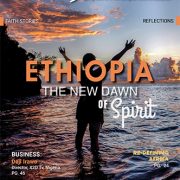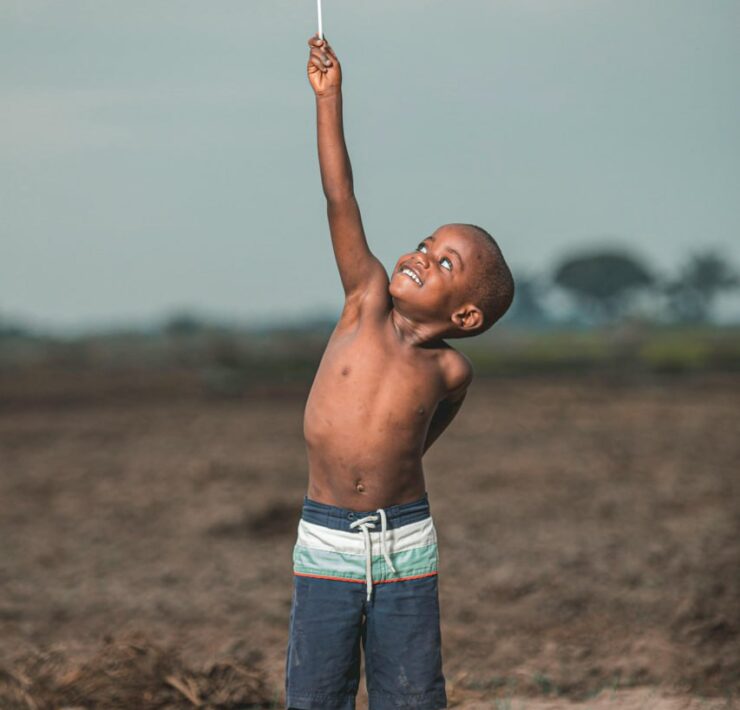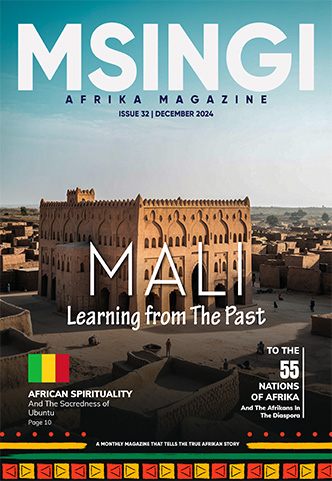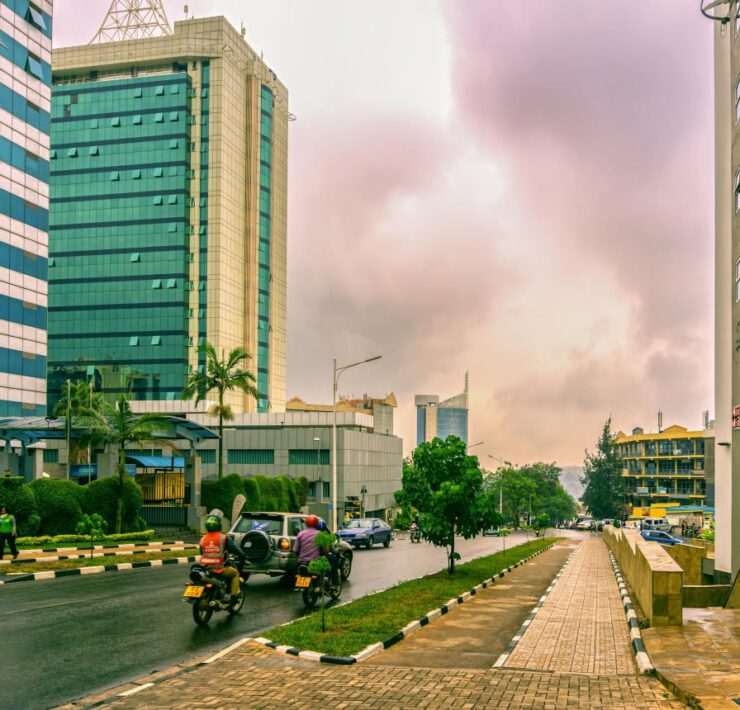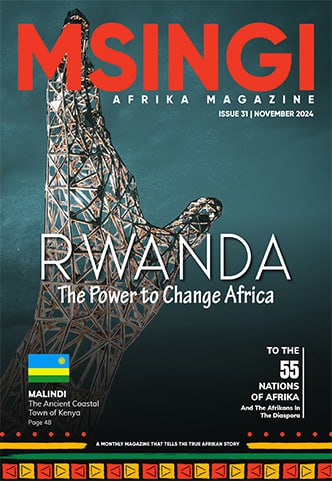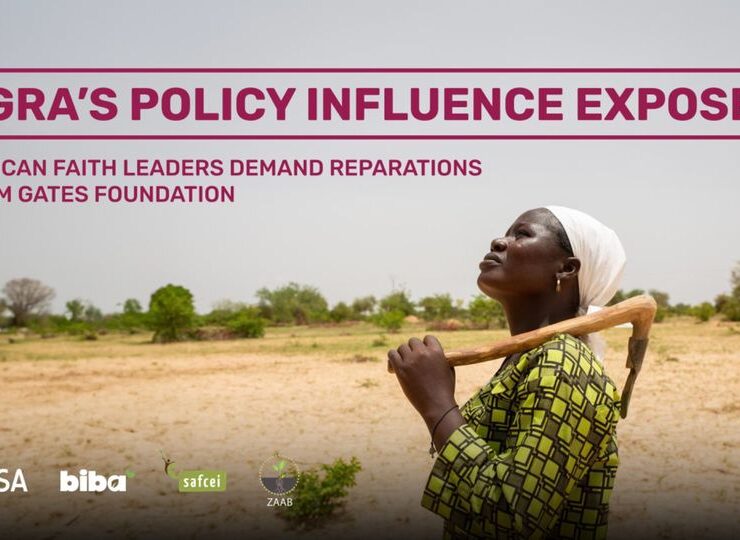
Samuel Phillips is a writer, graphic designer, photographer, songwriter, singer…
Read Next
WHAT WE CAN LEARN FROM SINGAPORE
I personally do not see development as just new roads, fine city-scapes, fine trains or transport systems, increases in artificial intelligence technology and the many other things we have blanketed with the word development. All these things are good for making everyday life a bit easier, even though, and almost all the time, these supposed development are the very instruments that turn our societies in the long run, into broken ecosystems that no longer support life in the way it was meant to be. Case in point, the issue of global warming, which if you ask me, is nothing but a warning that man has taken steps in the wrong direction for too long. And because nature was created in such a way that it must recycle itself in order to keep life going on earth, according to how the Creator gave the command, creation is groaning to reset itself. But man, instead of paying attention in humility to this very loud groaning, calls what is happening global warming and thus tries to use the very same science, which he used to kill the environment, to solve the problem his very development caused.
You certainly may not agree with my thoughts or opinion and I am perfectly fine with that. But I agree with the late founding President of Tanzania, Julius Mwalimu Nyerere when he mentioned that development for him is when everybody has the chance to be their best. He went further to say that, for Afrika to develop, she must have confidence in herself and use her own resources. That for Afrika to keep looking outside for her own development and sustainability is to enhance our own weakness.
These words were spoken in a interview many years ago and aptly so for today, after many years, Afrika is daily enhancing her own weakness to the detriment of true growth and the development of the continent. And if you ask me, we have not given people, indigenous cultures and even nature the chance to be at their best. We have created political systems that control the people and when they the people try to remind those in power that they are also citizens of that country, they are beaten down and then when you ask the rulers, they call it national security. We create imperial systems that suppress others and their cultures and call it self-growth. We use nature for our selfish tendencies and call it business.
We have not allowed everyone, including nature, to be at their best and we certainly are paying for it and will much more pay for it if we do not stop and rethink.
Certainly, I am not against development in any way, but the way we have approached it, having thrown caution to the wind, it is not sustainable in the long run.
Here is an excerpt I wrote out from a screenshot sent to my phone. Since its a screenshot, I really don’t know who the original writer is. The excerpt says “More than 500 million people in China have been lifted out of poverty in the past 25 years. Vietnam’s GDP has grown more than 8% per year for the past three years. In 1976, Malaysia’s poverty rate was 50% (same as Nigeria). Today, it is said to be less than 5%. In 1993, Vietnam’s poverty level was nearly 60% (same as Nigeria), now it is under 20%. Economics project that if current trends continue, Asia’s portion of global GDP will rise from 30% today to 50% by 2040.
However, Asia’s growth has come at a price. Asia is in danger of losing up to 75% of its forests and 40% of its biodiversity this century. Already, in the past 25 years, Asia has lost half of its forest, degraded one-third of its agricultural land and became home to to 13 of the world’s 15 most polluted cities.”
The case for the Amazon Forest
I saw an article online published by The Guardian titled: This is my message to the western world – your civilization is killing life on Earth. The letter was written by Nemonte
Nenquimo and it resonated deeply with my thoughts about the way we are approaching development. I will not share everything she wrote here, but will pull out a few excerpts.
“Dear presidents of the nine Amazonian countries and to all world leaders that share responsibility for the plundering of our rainforest, My name is Nemonte Nenquimo. I am a Waorani woman, a mother, and a leader of my people. The Amazon rainforest is my home. I am writing you this letter because the fires are raging still. Because the corporations are spilling oil in our rivers. Because the miners are stealing gold (as they have been for 500 years), and leaving behind open pits and toxins. Because the land grabbers are cutting down primary forest so that the cattle can graze, plantations can be grown and the white man can eat. Because our elders are dying from coronavirus, while you are planning your next moves to cut up our lands to stimulate an economy that has never benefited us. Because, as Indigenous peoples, we are fighting to protect what we love – our way of life, our rivers, the animals, our forests, life on Earth – and it’s time that you listened to us.” She continued:
“You are probably not used to an Indigenous woman calling you ignorant and, less so, on a platform such as this. But for Indigenous peoples it is clear: the less you know about something, the less value it has to you, and the easier it is to destroy. And by easy, I mean: guiltlessly, remorselessly, foolishly, even righteously. And this is exactly what you are doing to us as Indigenous peoples, to our rainforest territories, and ultimately to our planet’s climate.
I never had the chance to go to university, and become a doctor, or a lawyer, a politician, or a scientist. My elders are my teachers. The forest is my teacher. And I have learned enough (and I speak shoulder to shoulder with my Indigenous brothers and sisters across the world) to know that you have lost your way, and that you are in trouble (though you don’t fully understand it yet) and that your trouble is a threat to every form of life on Earth.” I won’t be able to teach you in this letter, either. But what I can say is that it has to do with thousands and thousands of years of love for this forest, for this place. Love in the deepest sense, as reverence. This forest has taught us how to walk lightly, and because we have listened, learned and defended her, she has given us everything: water, clean air, nourishment, shelter, medicines, happiness, meaning. And you are taking all this away, not just from us, but from everyone on the planet, and from future generations.”
The writer, Nemonte Nenquimo is co-founder of the Indigenous-led nonprofit organization Ceibo Alliance, the first female president of the Waorani organization of Pastaza province and one of Time’s 100 most influential people in the world.
When Afrikans refuse to die
A lot of questions are out there as to why the Covid-19 pandemic didn’t seem to do much harm in Afrika as against the postulation that the streets of Afrika will be littered with dead bodies. With such questions also came many answers. Some of such answers are just very dumb and it simply shows the very thing that the world has always thought about Afrika. It seems that to the world, Afrika is supposed to be the dumping ground for everything that they do not wish for themselves. Second hand clothes, second hand cars, second hand technology and even second hand Covid-19, to say the least.
In trying to figure out why Afrikans are still alive, some say it’s because Afrika is poor. Some say it’s because accurate testing and data are not available in Afrika. Some even said it’s because Afrika’s population is mostly young people below age 25. It’s simply mind boggling to whoever these people are that think they own how the Afrikan reality should turn out in this pandemic that Afrikans are still very much alive and bouncing in good health. In fact, at the beginning of the pandemic, the concern of these scientists, or whoever they are, was that the combination of the overstretched and underfunded health systems and the so-called existing load of infectious and non-infectious diseases in Afrika would lead to deaths at an apocalyptic level. Obviously, it did not turn out the way they thought, for on September 29th when the world passed the one million reported death marks, on the same day, the number of deaths in Afrika was cumulative total of less than 40,000. This must have been a huge slap in the face of those sons of wickedness who think Afrikans will die like flies on the street.
In all of the reasons they gave for why they think Afrikans did not die like they expected, they forgot to mention the fact that the so called Covid-19 virus thrives in bodies whose immune systems have been compromised. And like Dr Peter Mokaya pointed out in the interview published in this issue, the common factor in the death rate in Brazil, the USA and South Afrika is their use of poisonous pesticides and the eating of GMO foods which had over time have done lots of damage to the immune systems of the people living in these countries.
So if you ask me again, I will still say that what men have attributed to development as regards GMO seeds, GMO foods, high frequency mobile technology like 5G networks, nuclear energy, lots of electricity in the cities that practically shut out stars in the night, lack of community relationship due to mind-your-business middle class-ism, heavy duty factories that churn out heavy metals which in turn causes air, water and land pollution; is nothing but death creation. And I do not mean this in any bad way, if the so called first world America, with all its technology and health care systems could not save its people from Covid-19 which has symptoms that are not far from the common flu, then what right does anyone have to say that Afrika is not developed? None. But has Afrika used her resources in a way that establishes true development and better life for her people over the past sixty years after independence? The answer is no. Now the question is, why?
The less you know about something, the less value it has to you, and the easier it is to destroy. And by easy, I mean: guiltlessly, remorselessly, foolishly, even righteously –
Nemonte Nenquimo
The Singapore story
I was watching an interview posted on Facebook about Dr Kishore Mahbubani, who is a Chunqiu Senior Fellow, China Institute. He was talking about life and the changes that have happened in Singapore for the past seventy years. He mentioned about growing up in Singapore when the nation was still a growing developing third world country, with the per capita income at 500 dollars, which was the same in Ghana as at that time. He mentioned he came from a poor environment so poor to the extent that when he was sent to school at the age of six, they were admitted by weight. And because his weight was so small, he was declared under-nourished and placed in a special feeding program for under-nourished children. In the course of the video, he mentioned something so amazing. He said “It’s quite remarkable that in my lifetime Singapore has gone from being a third world country to a first world country and I have lived through this remarkable transformation.” This too amazed me as I listened to him speak.
In the video, he shared what he called the secrets of Singapore’s success. He called the secret formula MPH which stands for: Meritocracy, Pragmatism and Honesty.
Concerning Meritocracy, he said “Meritocracy means that you select the best people to run the country. And what brings many countries down especially in the third world is that when it comes to selecting their finance minister or economics minister, they will give their jobs to their brothers, their cousins, their uncles, their relatives and not to the best people. And Singapore did the exact opposite.” Thus Meritocracy is the first pillar of Singapore’s secret formula for success.
He spoke of the second pillar P as Pragmatism. In simple terms it means, it doesn’t matter what your ideology is, if it works, use it. Not being bound by any boxes or limitations. Being able to note changes in trends or when an ideology does not fit a particular situation and being free enough to shift and make use of what fits.
The third pillar H is what he called the hardest of all the three. H stands for honesty. He mentioned that has brought many third world countries down and what led to their failure in development has been corruption. And concerning dealing with corruption in Singapore, he mentioned how the Prime Minister Mr Lee Kuan Yew had to start the war on corruption from the most senior government officers, a thing which sent the deputy Prime Minister to jail for going on a vacation with a rich businessman.
Let’s bring it home
To be honest and very precise, I think the very three things Dr Kishore Mahbubani shared in that video are the very things Afrikan countries lack. Nonetheless, how amazing to know that, of a truth, change is possible for a people who are ready for it. But it appears to me that in Afrika, we are not really ready for change. We just seem to have mastered creating sensationalism around the concept of Afrikanism and noise-making without the true heart for change and the boldness to make it happen. But I am more of the opinion that it takes just a few people out of the lot to start the change process that we need.
In bringing home this whole Singapore formula for a successful Afrika, the question now will be, how do we incorporate this threepoint success formula that Singapore has judiciously used, into our Afrikan leadership and development agenda?
Let me say that to even speak about development from the perspective of an Afrikan, we must begin from seeing it as the system that gives strength and an enabling environment for the recreation and regeneration of life. Life being the original purpose of Motherland Afrika.
As Afrikans living in Afrika, we live in societies that reward foolishness in their most glaring ways and then expect things to change like magic. In Afrika, we still vote people into power not based on merit, but because they are family members or friends or from the same ethnic community or because we were given stipends by politicians to buy our votes and when these politicians with no merit come into power and continue the train of corruption, mismanagement, we cry and complain. But in the very next election we repeat the same trend.
Where the future lies
If the percentage of young people under 35 years old in Afrika is about sixty to seventy percent, then it means that the future of the continent is in the hands of the young generation. Which means that if Afrika must awaken from its inertia and go into progress mode, then each and every one of this 60 to 70 percent of young people in Afrika must understand the three pillars that makes for development. Each must understand that the leadership of Afrikan nations are the way they are because they, the young people of voting age, have allowed themselves be used to vote in those who gave them stipends during campaigns, rather than those who merit positions of power and leadership. In Nigeria for instance, how can a man who is a Professor of Law be the deputy of the President who does not even have a primary school certificate? And when he, the President, is asked simple questions about the economy, he has nothing useful to say. You get my point?
Any way out?
I believe there is a way out. For if Singapore could come out of the insult called the third world country narrative, then any nation on earth can.
Firstly, and just like Dr Kishore Mahbubani suggested, let citizens of Afrikan nations stop voting for fools and start voting leaders based on merit. Each Afrikan nation right now, has countless men and women both young and old who are very qualified to lead their nations based on merit. We can change the trend by our votes.
Secondly, the leadership in all Afrikan countries must understand that they owe it to their young Afrikans that it does not matter what background they have, if their ideas work, then the state should be open to use them instead of suppressing their voices. By this, the young Afrikans get to be involved in the progress and development of their nations. And if you ask me, Afrika has got lots and lots of talented young people who are passionate and loyal to the narrative of a better Afrika.
Thirdly, I cannot overemphasize the importance of honesty as a major framework for the development of Afrika. It is sad however that most Afrikan youths, having looked at the political landscape for so long, and with no true leadership coming from the so-called leaders, except maybe to flaunt stolen money around, now believe that the quickest way to make money in Afrika is to be a politician. And because such goals to become politicians is based on money agenda, the cycle of corruption and failed leadership never ends. The baton is just passed from one generation of corrupt people to another.
So what are we really dealing with here? Simply put, you can “change” landscapes with massive engineering and technology and call it development but what we really need are renewed mind-scapes filled with hope and love for life and the sustaining of the same.
The human heart naturally bends towards life and that which sustains life. Meaning that while Afrika fights to create development, she must not lose touch with her original purpose, which is, to give life and also to nurture it. For if we go the way of development without paying attention to life and the sustainability of life, we just might be caught in the fire of another future pandemic but with worse outcomes.
We can build Afrika by choosing those who represent us through merit, by being pragmatic with our policy making and then by demolishing the tower called corruption.
Subscribe now for updates from Msingi Afrika Magazine!
Receive notifications about new issues, products and offers.
What's Your Reaction?
 PIN IT
PIN ITSamuel Phillips is a writer, graphic designer, photographer, songwriter, singer and a lover of God. As an Afrikan content creator, he is passionate about creating a better image and positive narrative about Afrika and Afrikans. He is a true Afrikan who believes that the true potential of Afrika and Afrikans can manifest through God and accurate collaborations between Afrikans. Afrika is the land of kings, emperors, original wisdom, ancient civilizations, great men and women and not some road-side-aid-begging poor third world continent that the world finds joy in undermining.









